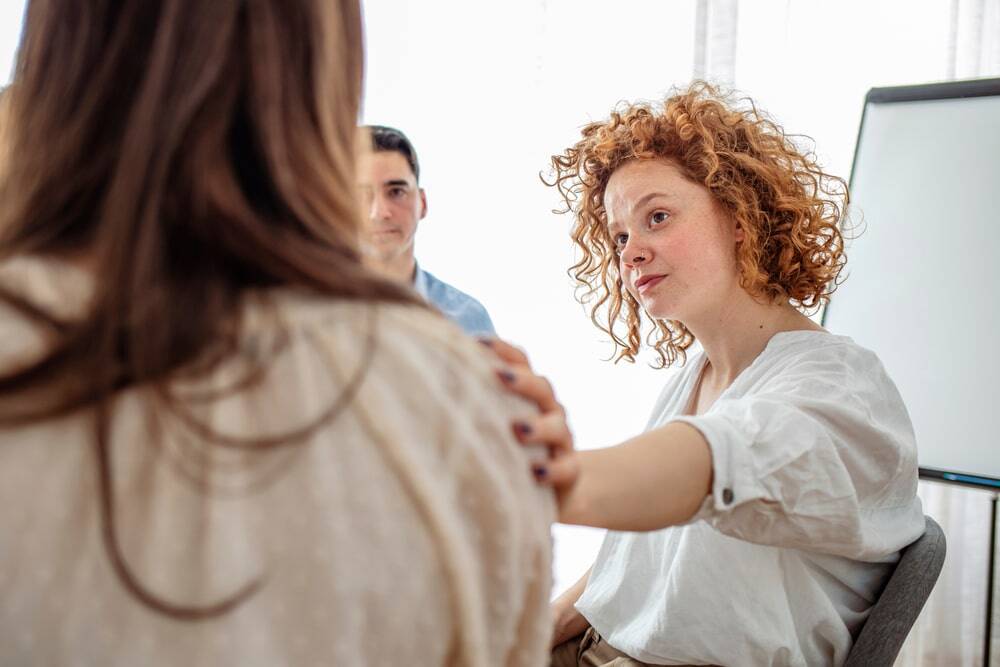What Therapies Work Best In Treatment?
Every individual is different and each will require a tailored treatment plan when it comes to recovering from substance abuse and/ or addiction. There are a plethora of different therapeutic treatment modalities that could be incorporated into one’s treatment plan, depending on her needs. In addition to traditional psychotherapy, some of the most commonly relied upon therapeutic treatment methods when treating substance use disorder could include but are not limited to cognitive behavioral therapy, dialectical behavior therapy, and interpersonal therapy. In order to provide the most effective substance abuse and/ or addiction treatment, including a variety of different types of therapies in one’s treatment plan is advantageous.
Cognitive Behavioral Therapy
Cognitive behavioral therapy (CBT) works by addressing one’s thoughts. CBT is based on the idea that one’s thoughts govern one’s feelings, which in turn affects one’s behaviors. It focuses on challenging and changing unhelpful cognitive distortions and behaviors, improving emotional regulation, and developing personal coping strategies to problem solve effectively. Through short-term goals, cognitive behavioral therapy will help a person shift her thoughts to change her feelings, resulting in healthier patterns of behavior. CBT is typically done one on one and/ or in a group setting.
Interpersonal Therapy
Interpersonal therapy (IPT) was developed in the 1970s. IPT is a therapeutic modality that is most often used to treat individuals who suffer from anxiety disorders, eating disorders, depression, as well as other psychiatric disorders, including substance use disorder. Interpersonal therapy focuses on how a person’s communications and interactions with other people affect her own mental health. Through interpersonal therapy an individual will learn to resolve and adjust to unhealthy interpersonal problems, resulting in a symptomatic recovery.
Dialectical Behavior Therapy
Dialectical behavior therapy (DBT) is a type of cognitive behavioral therapy that places greater emphasis on the psychosocial aspect of therapy. Marsha M. Linehan initially developed it in the 1980s, to help treat chronically suicidal people with borderline personality disorder (BPD). Since its inception, dialectical behavior therapy has been and remains the gold standard method of treatment for individuals diagnosed with BPD, and has also proven effective in treating individuals with other mental health conditions, including substance use disorder.
DBT utilizes four main strategies for teaching individuals skills that help with effectively changing their behaviors. They include the following, as provided by Behavioral Tech:
- Mindfulness: the practice of remaining present and fully at the moment at any given time
- Distress Tolerance: learning to tolerate pain in challenging situations, without changing it or escalating it
- Interpersonal Effectiveness: increasing one’s self-awareness through learning to advocate for one’s own wants and/ or needs by saying no and/ or expressing one’s desires while maintaining self-respect
- Emotion Regulation: learning how to understand, shift and/ or change unwanted emotions
DBT is comprised of three distinct settings: weekly individual therapy sessions, weekly DBT group skills training sessions, and phone coaching. The entire DBT program (provided skills modules are not repeated) usually lasts about six months long, as approximately six weeks are allocated to each of the four skills modules.
For Information and Support
Substance abuse and addiction can be incredibly dangerous and can result in severe short and long-term consequences. If you or someone you know is suffering from substance abuse or addiction, please get help as soon as possible. The earlier you seek support, the sooner you and your loved ones can return to leading happy, healthy, and fulfilling lives. There is no reason to go through this alone, and we are here to help. Please feel free to reach out to us for further information or with any questions regarding substance abuse or addiction. We are available anytime via telephone at: 213-389-9964, or you can always email us at: info@friendlyhousela.org.



